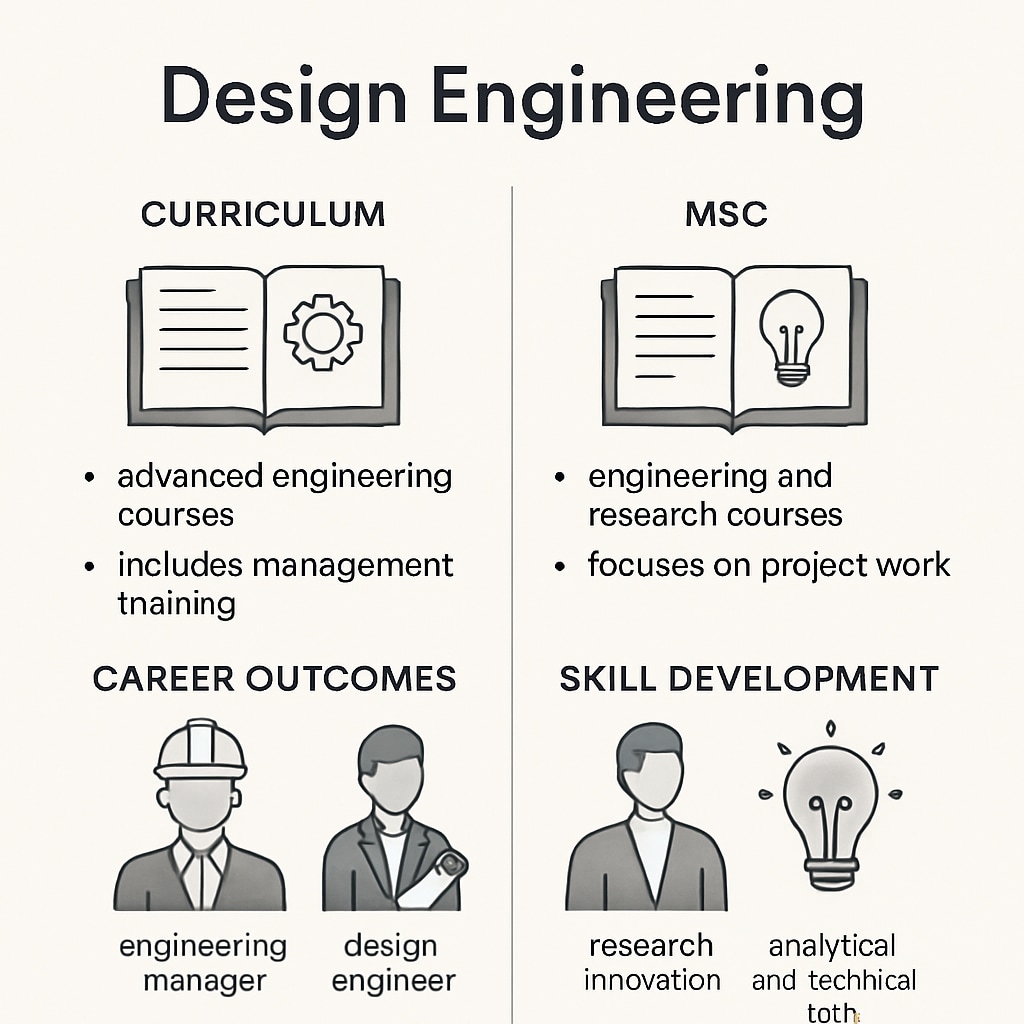When considering a career in design engineering, selecting the right degree is a crucial step toward achieving long-term professional success. The distinction between MEng (Master of Engineering) and MSc (Master of Science) degrees in design engineering can significantly impact career opportunities and development. This article explores the nuances of these degrees, their unique benefits, and how they influence future employment prospects.
Understanding Design Engineering Degrees: MEng vs MSc
Design engineering focuses on combining creativity, technical expertise, and problem-solving skills to develop innovative solutions. Both MEng and MSc degrees prepare students for this dynamic field, but they differ in structure, focus, and outcomes.
- MEng: The MEng is a professional degree emphasizing practical engineering skills. It often integrates internships, industry placements, and hands-on projects, making it ideal for students aiming to enter the workforce directly after graduation.
- MSc: The MSc is research-oriented and focuses on theoretical knowledge. Students pursuing an MSc often engage in academic research, making this degree a stepping stone for those considering doctoral studies or careers in academia.

MEng and MSc: How They Shape Career Prospects
Choosing between an MEng and MSc degree can influence the trajectory of your career in design engineering. Both degrees offer unique advantages depending on your goals:
- Employment Opportunities: MEng graduates tend to secure roles in industry faster due to their practical experience, while MSc graduates may pursue specialized positions or advanced research opportunities.
- International Recognition: MEng degrees are often more widely recognized in professional engineering settings, whereas MSc degrees hold value in academic circles worldwide.
- Salary Expectations: While both degrees offer competitive starting salaries, MEng graduates may initially earn more due to their immediate industry readiness.
According to engineering career statistics on Wikipedia, graduates with practical experience often outperform their peers in securing high-demand roles. However, MSc graduates with research expertise may find themselves uniquely positioned in niche markets.

Factors to Consider When Choosing Your Degree
Before deciding between an MEng or MSc degree, it’s important to evaluate several factors:
- Career Goals: If you aim to work in industry, an MEng may be the better choice. However, if your goal is academic research or specialized technical development, an MSc may be preferable.
- Learning Style: MEng programs emphasize practical, hands-on learning, while MSc programs focus on theoretical understanding and research methodologies.
- Institution and Accreditation: Ensure that your chosen program is accredited by relevant professional bodies, such as the Accreditation Board for Engineering and Technology (ABET).
For further insights on degree accreditation and global standards, refer to the engineering overview on Britannica.
Conclusion: Planning for Success in Design Engineering
Whether you choose an MEng or MSc degree, the key to success lies in aligning your education with your career aspirations. Both options offer robust pathways into the dynamic field of design engineering, but the choice ultimately depends on your personal goals and interests.
Investing in the right degree not only shapes your future career but also enhances your ability to contribute meaningfully to society through innovation and problem-solving. Take the time to research, evaluate, and decide on the path that best fits your ambitions.
Design engineering is a field where creativity and technical expertise converge. By choosing the right degree, you pave the way for a fulfilling and impactful career.


